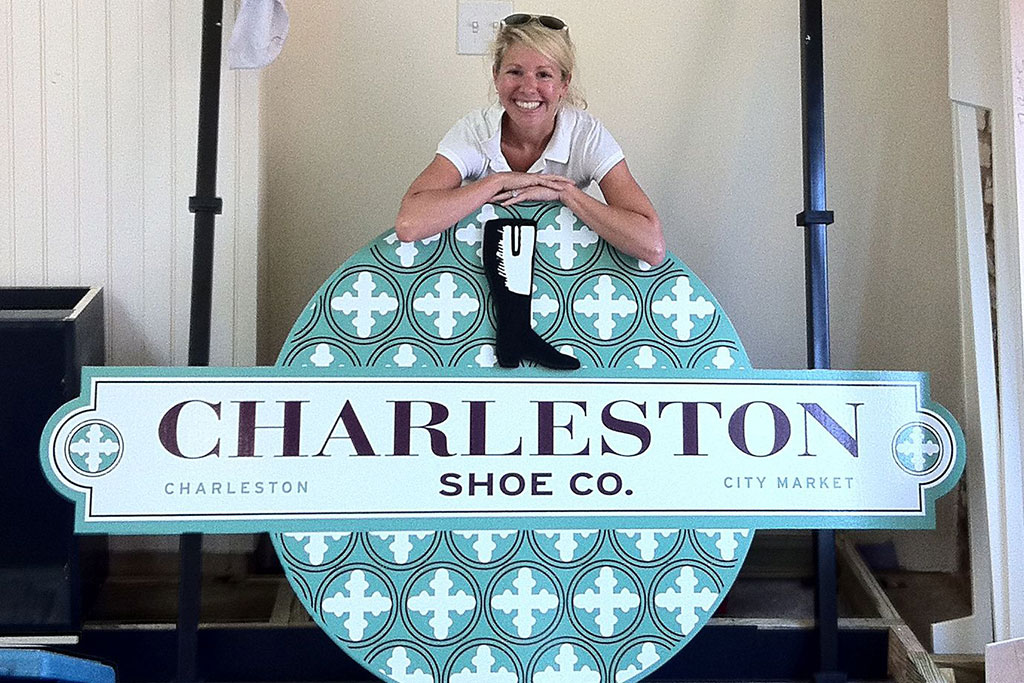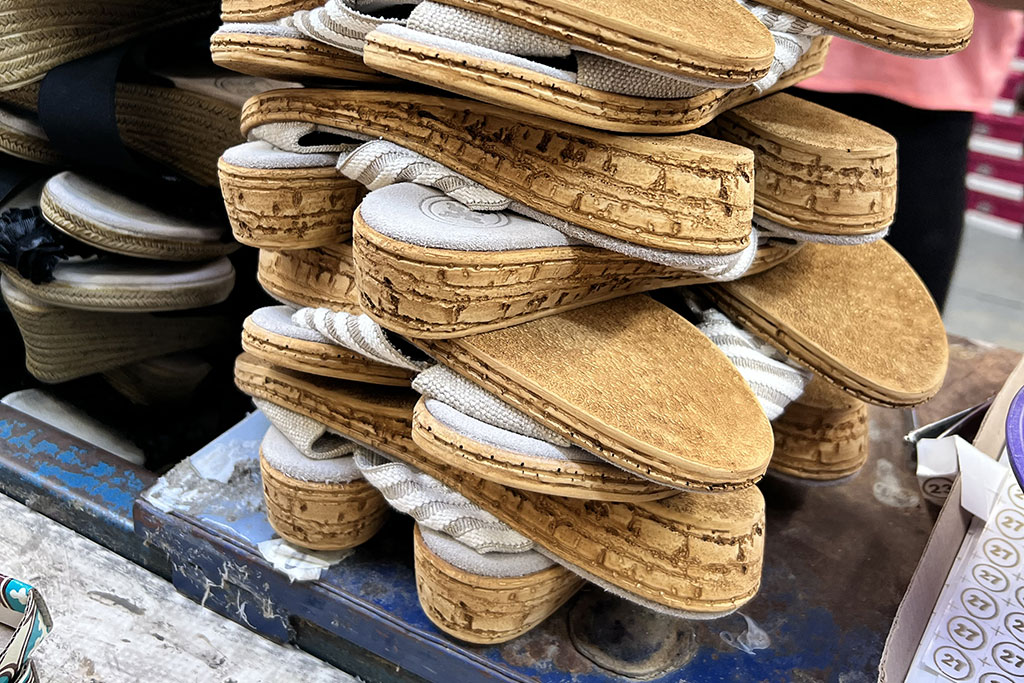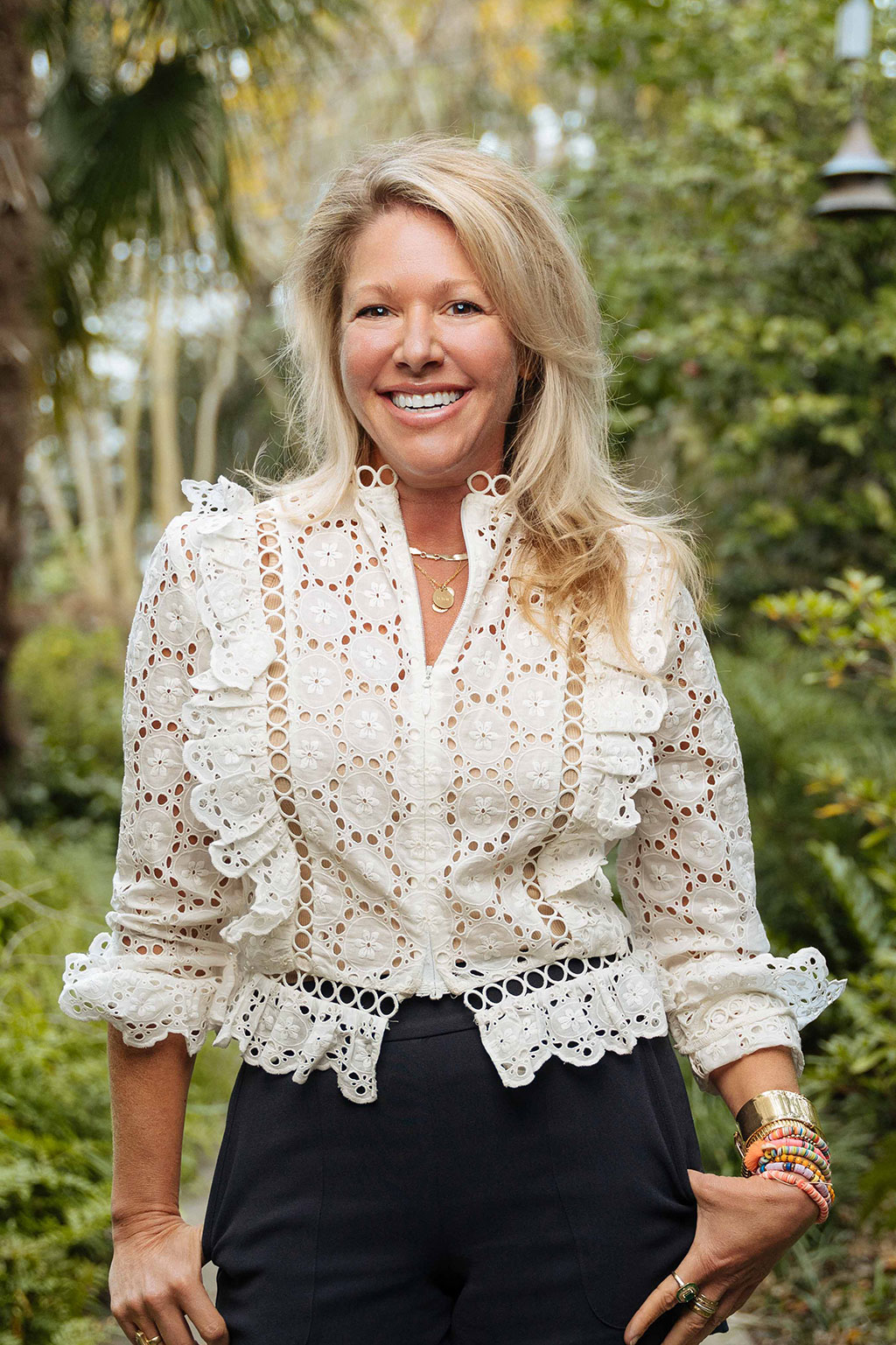In the Shoes of a Retail Innovator
Interview with Neely Woodson Powell
Photography of Charleston Shoe Company
CEO Neely Woodson Powell discusses what inspired her to launch Charleston Shoe Company, the challenges she faced starting and growing it, and what it does to stand out above the competition.
Tell us about the journey to founding your company:
Did you face any hurdles opening that first store? When did you open your first stores? I used to go with my mother to visit a friend of hers who had moved to San Miguel de Allende, an old colonial town with cobblestone streets in central Mexico. One day in 1993, when I was fifteen, I went into a shop where a cobbler was making shoes and bought a pair as a souvenir. Then, whenever we were back in town, my mom and I would buy some more; soon, my friends began asking me if I could purchase his shoes for them.
Later, as a college student, I began working with the cobbler for my own business. I would go to furniture markets with my mom—she owned her own furniture business—and sell them from her booth. For several years, I built my business by selling them out of the trunk of my car, and then I started wholesaling them across the country.

When did you open your first stores?
In 2009, I enrolled in the Savannah College of Art and Design to learn more about shoe design. The next year, I opened my first retail store in Savannah, naming it the Savannah Shoe Company. Since the city has so many tourists who walk its streets to view its beautiful architecture, I thought the shoes could be a useful souvenir—who doesn’t want a cute pair of shoes instead of a coffee mug? I opened my second location in Charleston about four months later and called it Charleston Shoe Company, quickly following it up with another location in the city. Within a year, I had three retail stores. Eventually, I changed my business’s name to Charleston Shoe Company. And over thirty years later, I still partner with the same cobbler.
Did you face any hurdles opening that first store?
For one, I had to borrow $5,000 from my mom and her business partner for the first and last months’ rent. In addition, I had a “build it, and they will come” mentality when I opened that store, thinking people would instantly shop there as soon as I opened its doors. That wasn’t the case initially, though, and I didn’t have money to market my business. So I stood outside my shop wearing mismatched shoes to try to get people to notice my feet and go inside. I knew if I could get my super comfortable sandals on their feet, they would buy them. Eventually, the shoes started selling themselves—people would purchase them and return with more customers a few hours later. The momentum continued, with my customers being my biggest advocates and helping me promote my business.
What’s a particularly challenging aspect of being a retail entrepreneur?
Inventory is always tricky, especially during growth. For instance, I opened fourteen stores in 2019, so going into 2020, I had thirty-two total brick-and-mortar stores with a lot of shoes on the shelves. But we had to close all our locations for a few months during the pandemic, leaving our inventory to sit. However, one thing that sets us apart from many companies is that we don’t manufacture overseas. We work with our cobbler’s small group of artisans in Mexico, and everything is made one at a time. So if I bring a new shoe to market, I can order just a few of them at first. If it sells well, I can quickly pivot and reorder more on a dime. If we were making them overseas, it could take four to six months to get them on the shelves, and then we’d have already missed the season. We have the luxury of being able to order more shoes as we find necessary, which also helped us navigate COVID.

You now have stores coast-to-coast. What’s your key to managing them efficiently?
Since we have amazing employees who love what they do, I don’t need to micromanage them. We’re a family. They’re fully capable of managing their own shops and can turn setbacks into advantages. We now have locations in California, Florida, Georgia, South Carolina, New York, and Massachusetts and have even opened a shop in the Caribbean. On top of that, we sell our shoes online and to more than five hundred retailers.
You don’t do franchising. Why is that?
I believe in my employees. We aren’t your average retail store; when people come to our shop, they feel like they’re shopping in their best friend’s closet. That’s what attracts customers to us. I want to keep that culture and that experience going strong. If you franchise, there’s a tendency to lose that.
Is it by design that many of your team members are women?
Yes, it’s a natural fit. I was actually an anomaly when I first started selling shoes in the 1990s; mostly men sold shoes back then. And since most of our products are for women, it’s helpful for my staff to model them so customers can see what they look like when they’re being worn. Also, by wearing them both inside and outside of work, my employees add another element, a testimonial, showing that women who work in retail and stand on their feet all day enjoy our sandals.

You frequently make it a point to work in your stores, which entrepreneurs don’t always do. What benefits come from it?
It lets me experience a typical day for our managers and sales associates, troubleshoot for them, and meet customers. I enjoy building relationships. When I design shoes, there’s no better way to understand what our customers need than by observing, interacting with, and listening to them. Plus, I started this company by selling shoes, so I love working in our shops. I’d much rather be there than sitting behind my desk. Retail is the heart and soul of this company.
Do you still wear two different shoes while working?
I do! It helps set the mood and makes people feel at ease. When customers walk in and notice someone wearing shoes that don’t match, it sets a fun tone and allows them to see the variety of our product. It’s a good marketing tactic.
What would you say is the biggest secret to your success?
Location, location, location. Many of our shops are in tourist towns like Charleston and Naples, Florida, so we attract both visitors and locals. Many of our customers shop with their houseguests and bring new groups of friends with them week after week. Also, Charleston Shoe Company doesn’t look like a typical retail store. Visiting us can feel like going to Baskin-Robbins with its fantastic choices, and we build genuine relationships with our customers. It’s an experience.
What are your tips for first-time entrepreneurs?
Persistence is critical. I didn’t see a profit for years—not until I opened my first retail store. You must believe in what you’re doing and be grateful that you can be an entrepreneur. It’s also imperative to treat every problem like an opportunity to strengthen your business. If you focus on the negative, you won’t grow and learn new ways to pivot your brand.
For more info, visit charlestonshoeco.com


















